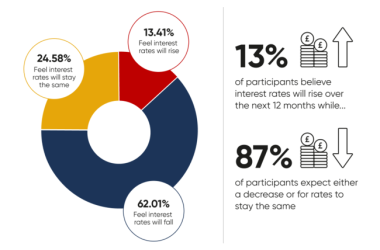Last Updated on: 10th January 2025, 03:35 pm
Have you ever thought about buying property as an investment? Real estate is one of the most popular ways to build wealth. But while it can be rewarding, it’s not as simple as buying a house and watching your money grow. Investing in property takes research, planning, and an understanding of the market.
In places like Alabama, where real estate markets are growing, opportunities for investors are increasing. The right investment could help you generate steady income or long-term profits. However, making the wrong decision might cost you time and money. Knowing what to expect before jumping in can help you avoid mistakes and make smart choices.
In this blog, we will share what you need to know before investing in real estate and how to prepare for success.
Understand the Different Types of Real Estate Investments
Real estate offers many ways to invest, and each option has its benefits. You can buy residential properties, like houses or apartments, to rent out for a steady income. You might consider commercial properties, like office buildings or retail spaces, which often come with higher rental rates.
Some investors focus on flipping homes. This means buying a property at a low price, renovating it, and selling it for a profit. Others invest in real estate through partnerships or funds, which allow you to share the risk with other investors. Understanding these options helps you decide which path matches your goals and resources.
Research Local Market Trends
Before investing, take the time to study local market trends. Look at how property prices are changing and what factors might affect them. For example, job growth, population increases, and new developments can influence property values.
In addition, pay attention to the housing market and Alabama mortgage rates. Mortgage rates impact how much you will pay to finance a property. Lower rates make it easier to afford a loan, while higher rates increase costs. Knowing the current rates helps you plan your investment wisely. Researching the local market ensures you choose an area where demand is high and prices are likely to rise.
Set Clear Investment Goals
Think about what you want to achieve with your investment. Are you looking for monthly rental income, or do you want to make a profit from selling properties? Your goals will shape the type of property you choose and how long you hold onto it.
If you want long-term growth, buying and holding onto a property for several years might be the best approach. If you prefer quick profits, flipping houses might be more suitable. Setting clear goals helps you stay focused and make decisions that align with your plans.
Budget for All the Costs
Investing in real estate involves more than just the purchase price. You need to budget for all the costs, including closing fees, property taxes, insurance, and maintenance. If you plan to rent out a property, factor in the cost of repairs and possible vacancies.
Don’t forget about financing costs, like mortgage payments and interest. Unexpected expenses can come up, so it’s wise to have a financial cushion. Knowing your budget helps you avoid getting in over your head and keeps your investment profitable.
Location Matters More Than You Think
The location of a property is one of the biggest factors in its success. A house in a good neighborhood with access to schools, shopping, and public transport is more likely to attract renters or buyers. Properties in areas with job growth and new infrastructure projects often increase in value over time.
Look for places that offer both convenience and potential for growth. If the location is desirable now, it will likely remain a solid investment in the future. Always visit the neighborhood and check out the surrounding areas before making a purchase.
Understand the Risks Involved
Like any investment, real estate comes with risks. Property values can go down due to economic changes, natural disasters, or shifts in demand. You might struggle to find renters or end up with tenants who damage the property. Repairs and maintenance can be costly, especially if unexpected problems arise.
Knowing these risks helps you prepare and plan. Consider getting insurance to protect your investment and have extra funds set aside for emergencies. Understanding the risks doesn’t mean avoiding real estate—it means being smart and ready for challenges.
Find the Right Financing Option
Choosing the right financing option can make a big difference in your investment. Most investors use a mortgage to buy properties, but not all loans are the same. Fixed-rate mortgages offer stable payments, while adjustable-rate mortgages can change over time.
Explore different lenders, loan terms, and interest rates. Work with a mortgage broker if you need help finding the best deal. Having the right financing plan can save you money and make your investment more manageable.
Start Small and Learn as You Go
If you’re new to real estate investing, starting small can help you learn without too much risk. Consider buying a single-family home or a small apartment. Managing one property helps you understand the basics of buying, maintaining, and renting.
As you gain experience, you can expand your investments. You’ll learn what works best for you and develop the skills needed for larger projects. Starting small lets you build confidence and make informed decisions.
Stay Informed About Market Changes
Real estate markets are always changing. Keep up with news about property trends, mortgage rates, and local developments. Staying informed helps you make smart decisions and avoid costly mistakes.
Join local real estate groups, attend seminars, or read industry blogs. The more you know, the better prepared you’ll be. Successful investors stay curious and adapt to changes in the market.
All in all, investing in real estate can be a smart way to build wealth and secure your future. But it requires knowledge, planning, and a clear understanding of the market. Each decision shapes the outcome of your investment journey.
Take your time, learn the basics, and seek advice when needed. Real estate isn’t just about buying property; it’s about making choices that help you grow. The right investment today can lead to a brighter, more secure tomorrow.






